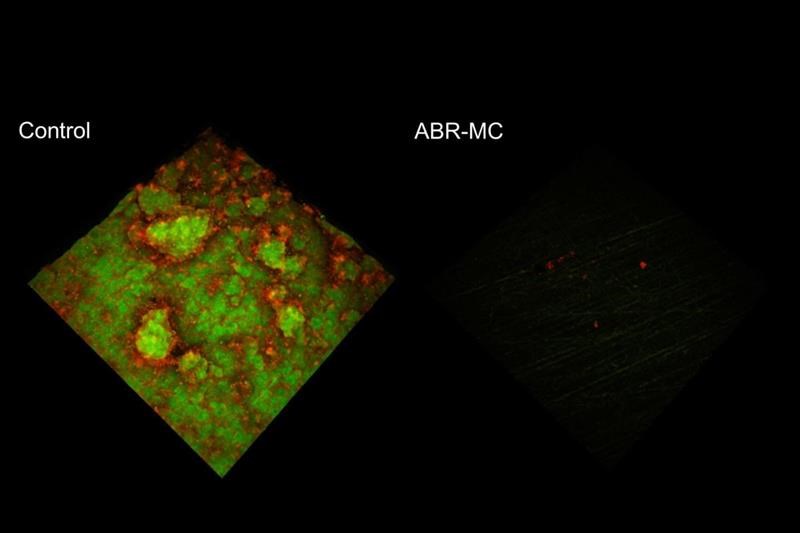Plaque-resisting dental material kills microbes
Published: 12/12/2017
A US team has developed robust material for dental filings that kills decay-causing microbes and resists the formation of plaque.
Dentists rely on composite materials to perform restorative procedures, such as filling cavities. Yet these materials, like tooth enamel, can be vulnerable to the growth of plaque, the sticky biofilm that leads to tooth decay.
In a new study, researchers from the University of Pennsylvania evaluated a new dental material tethered with an antimicrobial compound that can not only kill bacteria but can also resist biofilm growth.
In addition, unlike some drug-infused materials, it is effective with minimal toxicity to the surrounding tissue, as it contains a low dose of the antimicrobial agent that kills only the bacteria that come in contact with it.
Geelsu Hwang, research assistant professor in Penn's School of Dental Medicine, says: 'Dental biomaterials, such as these, need to achieve two goals: first, they should kill pathogenic microbes effectively, and, second, they need to withstand severe mechanical stress, as happens when we bite and chew. Many products need large amounts of anti-microbial agents to maximize killing efficacy, which can weaken the mechanical properties and be toxic to tissues, but we showed that this material has outstanding mechanical properties and long-lasting antibiofilm activities without cytotoxicity.'
Hwang collaborated on the study, which was published in the journal ACS Applied Materials and Interfaces, with Penn Dental Medicine professor Hyun (Michel) Koo and Bernard Koltisko and Xiaoming Jin of Dentsply Sirona.
The newly developed material is comprised of a resin embedded with the antibacterial agent, imidazolium. Unlike some traditional biomaterials, which slowly release a drug, this material is non-leachable, thereby only killing microbes that touch it.
'This can reduce the likelihood of antimicrobial resistance,' Hwang notes.
Author: Julie Bissett













